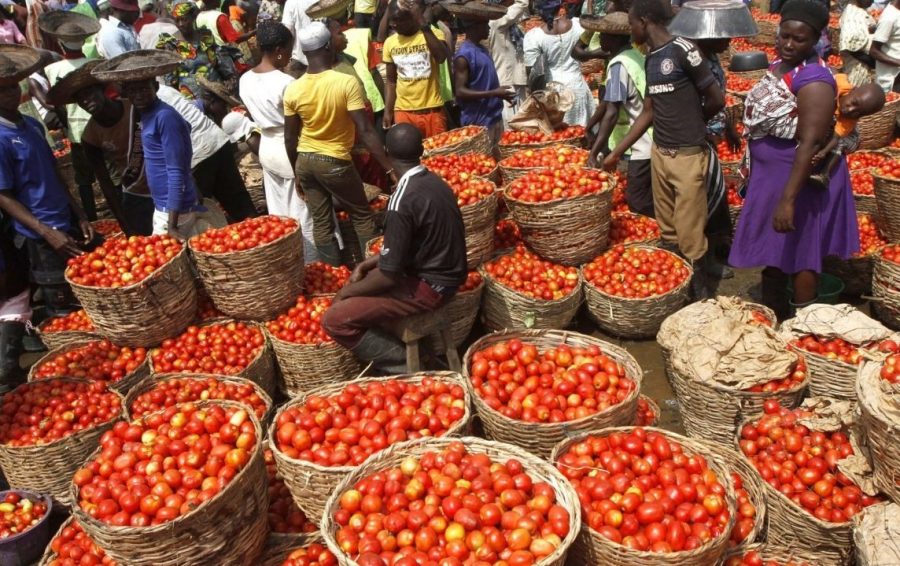What African countries must do to be food sufficient – IITA DG
With the high rate of hunger in Africa, the Director-General of the International Institute of Tropical Agriculture (IITA), Dr Nteranya Sanginga, has proffered solutions to the food challenges. A report by World Vision, an organisation investigating malnutrition in Africa, indicated that hunger is increasing at an alarming rate in the continent. Omicron now in 57 […]

With the high rate of hunger in Africa, the Director-General of the International Institute of Tropical Agriculture (IITA), Dr Nteranya Sanginga, has proffered solutions to the food challenges.
A report by World Vision, an organisation investigating malnutrition in Africa, indicated that hunger is increasing at an alarming rate in the continent.
- Omicron now in 57 countries, number expected to rise – WHO
- N8bn scam: No CCTV coverage at CBN office, defendant tells court
The report said the effects of the COVID-19 pandemic, conflicts, drought, economic woes, and extreme weather are reversing years of progress in the agricultural sector in Africa.
According to the report, as of 2019, about 234 million people in sub-Saharan Africa were chronically undernourished, which is more than in any other region. In the whole of Africa, 250 million people were experiencing hunger, which is nearly 20 per cent of the population in the continent.
But Sanginga blamed this on lack of enough budgetary allocation to the agricultural sector by most African countries, saying that this has been militating against the development of the sector in the continent.
The director-general, who spoke at a media interactive session on Thursday in Ibadan, said except adequate attention is paid to agriculture by African leaders, it might be difficult to attain food sufficiency in the continent.
Sanginga, from the Democratic Republic of Congo, assumed office in 2011 as the first African director-general of the 54-year-old international institute.
He noted that African countries had more than enough resources to attain food sufficiency and rely less on importation, adding, however, that the endemic leadership problems confronting them had been a cog in their wheel of progress.
This, Sanginga said, has been further compounded by the lack of commitment of most African leaders to agricultural development as reflected in the quantum of resources being allocated to the sector on yearly basis.
Citing the example of his home country, he said on average, DRC usually had 1.7 per cent budgetary allocation to agriculture, while in Nigeria, it was not more than two per cent.
“With all the resources available to DRC, the country still imports more than 70 per cent of food items, such as rice, beans and fish. Its annual budgetary allocation to agriculture is about 1.7 per cent, while in Nigeria, it is not more than two per cent.
“The situation is also the same in most other African countries. With these, how can we say that African leaders are serious about attaining food security in the continent?” he queried.
Sanginga, who cited examples of some Asian countries such as Malaysia and Singapore in the 60s, said until the African continent changed the mindset of its leaders, the continent will continue to face challenges.
“Malaysia, Singapore and other Asian countries were in the same level with African countries in the 60s. In fact, African countries were richer than most of these countries. Leadership is the problem of this continent.
“The issue of food security in Africa also has to do with leadership. Vision, passion and working very hard are the only way we can attain food security in Africa. Humility is very important in our leadership roles. Changing mindset of African leaders is very important for the betterment of the continent.”
The director-general reeled out his achievements in the 10 years he has been in the saddle, especially in the areas of creation of business incubation platforms, setting up youth agripreneurs programme, implementation of ‘Start Them Early Project’ (STEP) and building of food processing units under the IITA leadership.
“One of my most important legacies has been the creation of IITA Youth Agripreneurs (IYA) programme which was aimed at addressing the high rate of unemployment among African youths, with agriculture sitting as a goldmine, waiting for explorers.“More than 60 per cent of Africa’s estimated 1.2 billion people are under the age of 25 yet, with little job creation. Whereas agriculture remains an essential driver of economic development and an area of great opportunities for young people in the continent,” he said.Sanginga added that the IYA initiative has now been adopted by many organisations, especially African Development Bank (AfDB) which has scaled into 24 countries.
This, he said, has rekindled the hope of a new generation of African agricultural entrepreneurs who would feed the continent and create wealth and employment.
The director-general pointed out that these achievements, among others, have motivated the Ooni of Ife, Oba Adeyeye Ogunwusi, into singling him out for recognition and honour with the chieftaincy title of Aare Afurugbin Ola of the Source.
Sanginga, who insisted that the continent would continue to face food challenges if adequate attention was not paid to agricultural development, said the conferment of the chieftaincy title, whose translation is Lead Sower of Wealth and Prosperity of the House Oduduwa, will take place at Ile Oodua, Ooni’s palace, Ile-Ife, on Dec. 11.
While expressing appreciation to the royal father for the honour, Sanginga said it would further fire his passion for the development of agriculture and agribusiness in the African continent.
